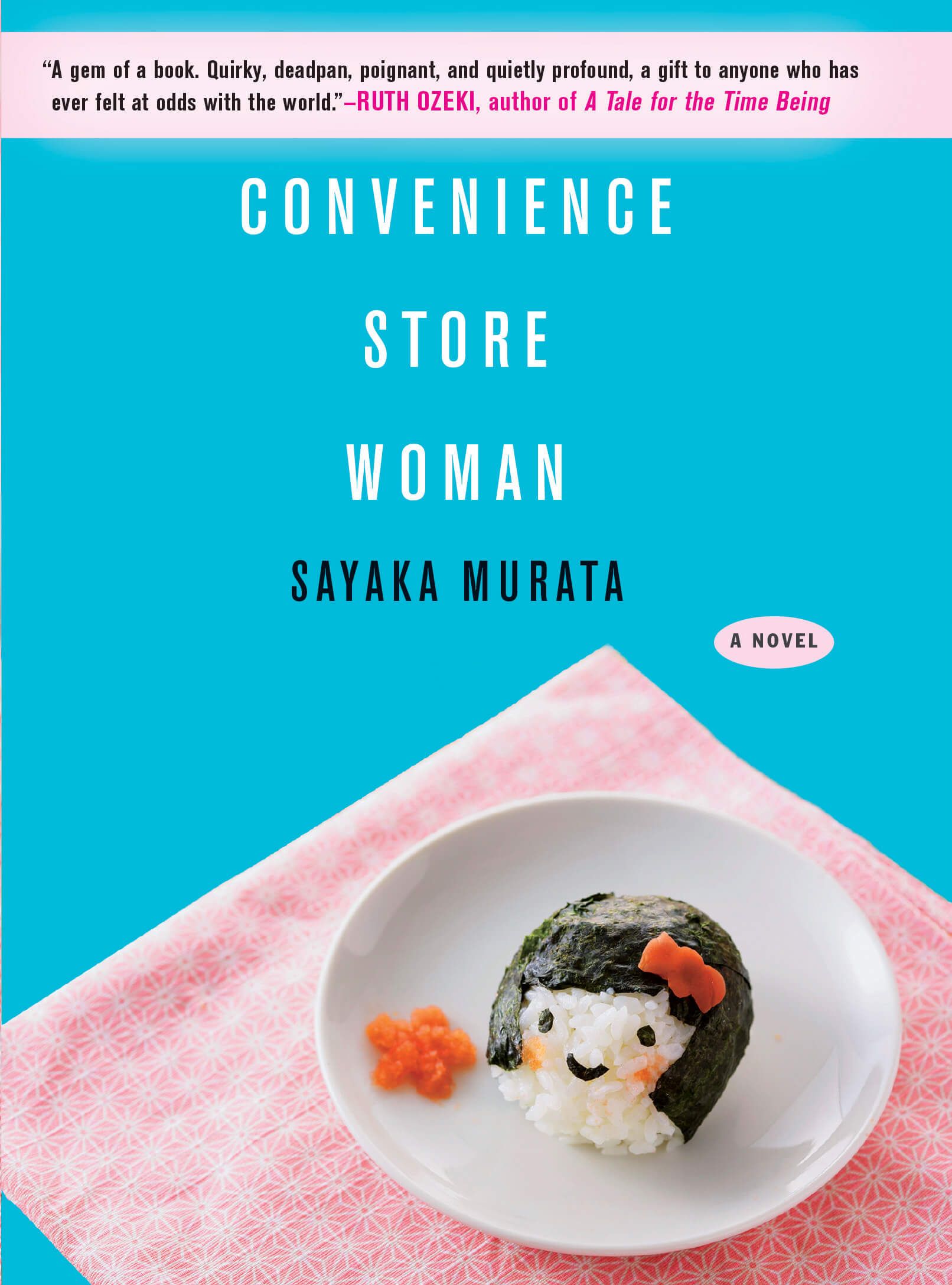Convenience Store Woman

details
contemporary fiction
review
Convenience Store Woman is a story set in Japan following a woman named Keiko Furukura as she tries (and fails) to fit in to the norms of Japanese society.
The term “failure”, in this instance, is viewed through the lens of conformity. For Keiko, it’s not a personal failing to work part-time at a convenience store for the rest of her life. In the confines of a convenience store, she knows exactly how to behave as a worker, and she’s quite good at it.
When I first started here, there was a detailed manual that taught me how to be a store worker, and I still don’t have a clue how to be a normal person outside that manual.
However, she does not do well outside of the convenience store. Keiko stitches together her coworkers’ and friends’ behaviour and uses that to seem normal to others. I do not know what the author’s intention was, but to me, it’s very heavily implied that Keiko is neurodivergent because of the way she acts.
[…] I felt reassured by the expression on Mrs. Izumi and Sugawara’s faces: Good, I pulled off being a “person.”
Though, I think Keiko is right when she said: “Infecting each other like this is how we maintain ourselves as human is what I think.” This *is* true on some levels. Sometimes, we adopt other people’s mannerisms subconsciously. Sometimes, we still listen to that band our friend recommended us years ago, even if we’ve long since stopped talking. If we go further with this line of thought, then we’re all just ships of Theseus, made up of other people’s mannerisms and likes and dislikes, and these social connections to other people is what makes us human.
I also find it interesting how Murata draws a parallel between her and Shiraha, another person who is deemed an outcast of Japanese society. Shiraha gets fired shortly after being hired as a convenience store worker because of his stalking behaviour and general… unpleasantness. Keiko then thinks that “if [she] ever became a foreign object, [she’d] no doubt be eliminated in the same way.”
Oh, I thought absently. I’ve become a foreign object.
This is when the idea of people being “foreign objects” come in. What does it mean to be a foreign object? Why are Keiko’s neurodivergence and Shiraha’s misogyny deemed to be on the same level and, as such, grounds for becoming an outcast? (These are rhetorical questions, of course.)
Keiko tries to make friends with Shiraha, to build rapport with a social outcast like her. They go so far as to create a fake relationship just so they (and especially Keiko) would be finally seen as normal. And for a while, it works. Keiko gets invited to after-work drinks (that she had no idea was happening in the first place!), her sister and friends are happy and excited for her… despite the fact that Keiko’s supposed live-in partner is an incel NEET. But hey, better to be in an unhealthy relationship than to be a “weird” person, right?
[Keiko’s sister is] far happier thinking [Keiko] is normal, even if she has a lot of problems, than she is having an abnormal sister for whom everything is fine.
On the path of trying to be normal, Keiko quits her job, partly to find a “better” job, and partly because her coworkers have now ceased being workers and are now human beings obsessed with the minutiae of social lives. Quitting doesn’t help; she becomes depressed and aimless in her every day life. Eventually, she lands a job interview, but before it happens, Keiko ends up in a different convenience store, and there she realizes this is where she’s meant to be. She is in tune with the convenience store, as if it’s a part of her and she’s a part of it.
(In fact, I had the same thought when she quit her job. Why not just work at a different convenience store, one where the coworkers don’t know her and her personal life? It turns out, that’s what was going to happen, anyway.)
All in all, this was a fun read! I finished it all in one day. At first, I was not sold, because it didn’t seem like anything was going to happen, like a typical “slice of life” story. But as it went on, it didn’t matter to me. I got into the rhythm of Keiko’s life and her several masks she put on to be normal. At times, I found myself relating *too* much to Keiko, which might be something I should look into, but let’s be honest, I probably won’t, lol.
I also found out from other bookbugs’ reviews (and literally just googling it) that the novel’s original title is コンビニ